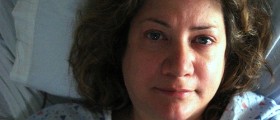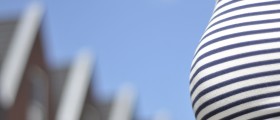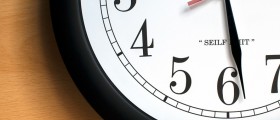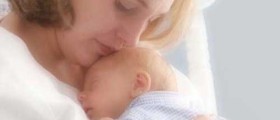
As we have all probably heard, as we grow older, our fertility levels decrease, especially if we are of the female sex. Therefore, for women, the age around 30 is considered to be the best possible one when it comes to having a baby.
The period before this age allows you and your partner to experience relationship and living together. Also, it gives both of you the time necessary for finding good jobs and establishing successful careers, having all the important milestones reached before your baby is born. However, you have to be careful during this period of waiting and preparing since once you reach older age, fertility may no longer be on your side.
Is Fertility Age Related?
According to various experts such as fertility specialists, financial consultants, relationships gurus and other health practitioners, being a mother at the age of 30 has its own ups and downs.
From a financial and practical standpoint, having a child in your 30s is a recommended step to take. Namely, during our 20s, we usually only reach the tip of the iceberg of our employment and our overall career and most of us are not financially independent at this point. However, in the 20s, women find it easier to be flexible and match working with bringing up a child. During 40s, however, the two actions can hardly be carried out at the same time. Therefore, 30s are optimal in this sense too.
Yet, we have to bear in mind the effect that pregnancy and giving birth to a child can have on a woman's job. Many employers refuse to pay for all the expenses of this period and to tolerate the paid absence from work that it involves. Therefore, regardless of how successful a woman in her 30s might be, her career can be jeopardized by her willingness to give birth to a baby.
Subsequently, many experts recommend that you keep track with the changes and innovations in your line of work during your leave, making sure that you are synchronized enough in order to come back to work once the whole period has ended.
Unfortunately, many other problems appear after the age of 35, regardless of the good will and the capabilities of mothers who embark on this challenging quest of childbirth and motherhood. Namely, fertility decreases after this age and women may need minor or moderate medical assistance once they decide to become mothers, especially once they reach the 39th age of their lives or later.
The age after 35 leaves a 25% chance of getting pregnant during a single ovulation cycle, which gives you 75% chances of conceiving within a year. As you get older than this, reaching the age of 38 or 39, your chances of having a baby within one year of trying to conceive are 65%.
Moreover, the risk of miscarriage appears during this time of a woman's life, being 12% for women who are 30 to 34 years old and 18% for those who are older than this age and younger than 40. Additionally, if the woman is having her first child born once she is older than 35 and younger than 40, the chances of her needing to undergo cesarean section are about 40%, in comparison to the 14% likelihood connected with mothers in their 20s.
Down syndrome is yet another condition to worry about since, in mothers older than 30, 1 in every 759 give birth to children with such genetic disorders. Note that the chances increase once you reach the age of 35, being 1 in 302.
The age between 35 and 40 is also a time when a woman is prone to giving birth to twins. However, if you are trying to conceive after the year of 35, practicing unprotected sex and failing to see the results, you might want to consult with your fertility expert, especially if you have history of suffering from STDs or some other conditions which might jeopardize this natural capability of yours.
What is Fertility Cycle?
In order to know when the right time for conceiving is, you need to bear several signs in mind. First of all, you need to concentrate on tracking your basal body temperature. Secondly, you are advised to pay attention to cervical secretion changes and finally you need to take your cervical position into consideration. All these factors will contribute to your capability of tracking your fertility rhythm and knowing when your chances of having a baby are the highest.
During the 14th day of your menstrual cycle, the estrogen levels in your body reach their peak and lead to a release of an egg which is best to be fertilized within 12 to 24 hours after this happens. After this period, the progesterone levels rise and estrogen levels drop, making the lining of the uterus harder in order to keep the fertilized egg safe. If no fertilization of the egg has taken place, the egg and the lining are expelled around the 28th day of the menstrual cycle.
Your normal basal temperature is about 97.5 degrees Fahrenheit. However, once you are ovulating, the basal temperature rises a little bit. So, before you go to bed and once you get up, measure your basal body temperature, keeping track of yourovulation.
All in all, following your fertility cycle can help you know when the chances of you conceiving are the highest. Once you know this, you can plan your pregnancy carefully and thoroughly. Yet, do not neglect your age and many other factors related to conceiving.

















Your thoughts on this
Loading...